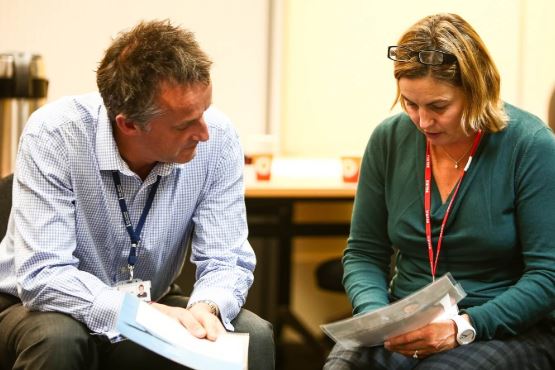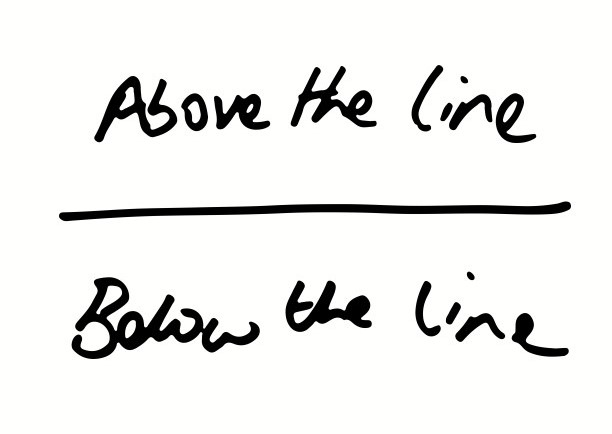I continue to seek the strongest evidence and arguments for schools to first be curious about coaching, and then invest in coaching. If my thinking was to be distilled, it is comes down to this:
To go fast, go alone. To go far together.
That is my – why? I just need a bigger why – to underwrite that commitment from schools. Then the what and the how can follow.
The recent ten year update to Google’s Oxygen Project my just be that bigger “why.”
If the answer is coaching? What is the question?
What is more important than the education of our children?
How do we retain AND grow our school leaders and teachers?
How do we show our school leaders and teachers? that they are truly valued?
How can we increase teachers’ sense of self-efficacy?
Coaching is a powerful, evidenced option to staff development, it is not the only option.
The Global Framework for Coaching in Education (2015) provides an evidenced based entry point to the different conversational contexts in which coaching can make an impact within educational communities. With the framework’s intertwined four portals categorising the opportunities open to schools.
- Student Success and Well-Being
- Educational Leadership
- Professional Practice
- Community Engagement
Both Wells Cathedral School and Wellington College offer convincing and anecdotal evidence for the first three. Supporting the Christian van Nieuwerburgh & John Campbell commentary that the last, Community Engagement, is still, “relatively under-researched and requires further study.” – CoachEd offers an accessible and light-weight introduction to their work.
Google’s Project Oxygen
Back in 2008, Google’s People Innovation Lab started Project Oxygen in an attempt to prove that manager quality does not have an impact on performance. They hired a group of statisticians to evaluate the differences between the highest and lowest rated managers from a whole host of different sources, past performance appraisals, employee surveys, interviews and other sources of employee feedback.
Their findings: good management makes a difference. To better define what makes a good manager, they came up with a list of eight qualities based on the data received.
1. Is a good coach
2. Empowers team and does not micromanage
3. Express interest in employee concern for success and well-being
4. Is productive and results-oriented
5. Is a good communicator — listens and shares information
6. Help with career development
7. Has a clear vision/strategy for the team
8. Has key technical skills to help advise the team
Project Oxygen 2008
Placed one and two, in arguably the most comprehensive study of management effectiveness, from the world second largest company (Alphabet – Google’s parent company), is a strong endorsement in itself. To retain those top two rankings ten years on, is as good as it is going to get.
1. Is a good coach
2. Empowers team and does not micromanage
3. Creates an inclusive team environment, showing concern for success and well-being
4. Is productive and results-oriented
5. Is a good communicator — listens and shares information
6. Supports career development and discusses performance
7. Has a clear vision/strategy for the team
8. Has key technical skills to help advise the team
9. Collaborates across Google
10. Is a strong decision maker
Project Oxygen 2018
Even the revisions to rankings three and six, hint at the growing importance of team psychological safety, – a form of organisational trust, as well as accounting the shear size and complexity of Google perhaps.
Maybe there is another way to communicate and advocate for coaching in school? By showcasing the inherent flaws of the current models of professional development? Few will be surprised to hear me say that, for many reasons, performance reviews are both flawed and toxic. The much shared Harvard Business Review (HBR) post on feedback, shares two of the most horrific and makes two observations.
Education performance decisions are plagued by idiosyncratic rater effects, i.e. your evaluation of someone’s teaching, has much more to do with the extent to which their teaching style reflects or aligns with your teacher-style, as opposed to the effectiveness of theirs. Not for the first time… “we see the world not as it is but as we are.” I regret to say, I am guilty of that feedback error, (feeding back positively when the teaching I observe, aligns with my one). Second, as the HBR also points out, our assessments of abstract qualities such as Middle Leadership are woefully unreliable and inaccurate. Again, I have been found guilty of passing judgements on direct reports leadership style without seeking evidence of their impact and outcomes (for students and staff).
The only realm in which humans are an unimpeachable source of truth is that of their own feelings and experiences.
Learning is less a function of adding something that isn’t there than it is of recognizing, reinforcing, and refining what already is.
https://hbr.org/2019/03/the-feedback-fallacy
Self assessment and a strengths based model approach has a role to play. These two observations are not immediately defined as coaching, however key components of it.
The final point I want to highlight is from a personal perspective. In coaching aspiring and senior leaders (from aspiring AHT to DHT), I have learnt so much from carefully and attentively listening to these staff members. To the extent that, collectively, I may have benefitted more than the clients, than them from me.
In coaching (as in leading, teacher and many other areas of life), when one listens, two learn.


